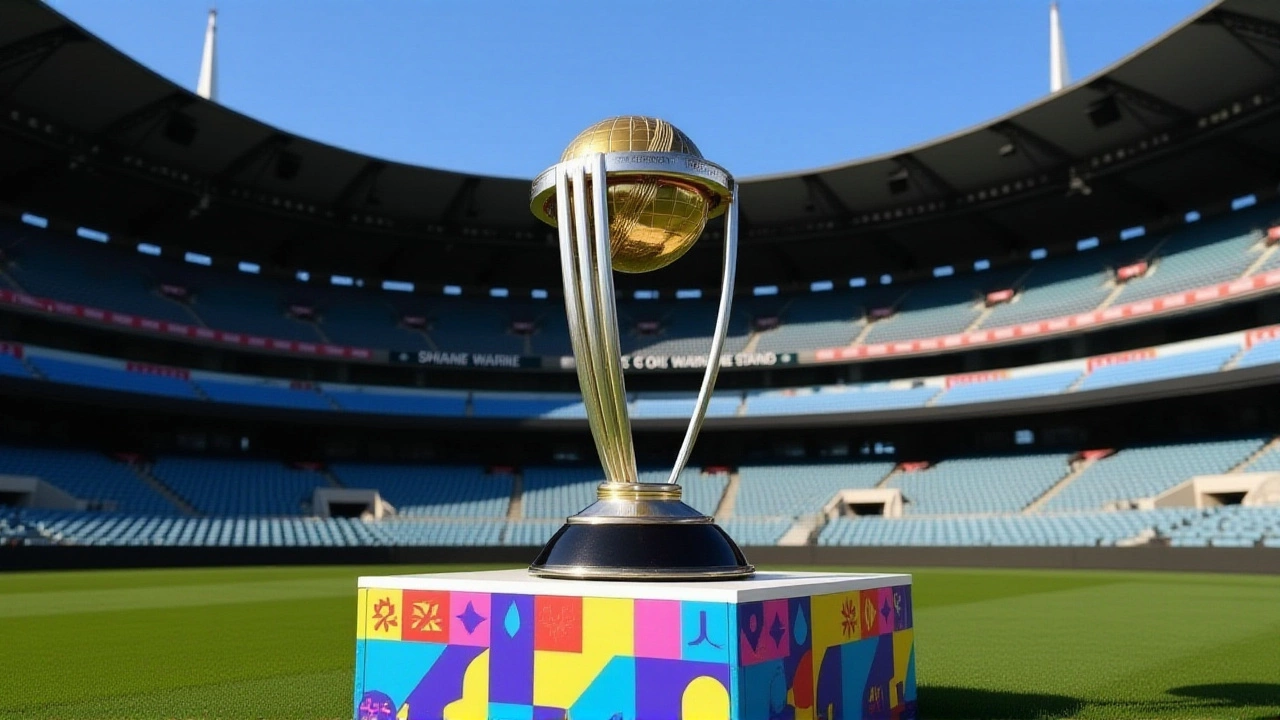The International Cricket Council’s (ICC) 2027 ODI World Cup will kick off in October‑November 2027, with Cricket South Africa confirming that 44 of the 54 matches will be staged across eight South‑African cities, while Zimbabwe and Namibia will share the remaining ten.
Venue Reveal and Host Cities
On an April 2024 roadmap, Rihan Richards, President of Cricket South Africa announced the eight South African venues: The Wanderers Stadium in Johannesburg, Kingsmead in Durban, Newlands in Cape Town, Centurion Park in Pretoria, St George’s Park in Gqeberha, Boland Park in Paarl, Mangaung Oval in Bloemfontein, and Buffalo Park in East London. The Wanderers, a historic ground that hosted the 2003 final, was the first venue to receive micro‑data markup in this article: The Wanderers Stadium.
Newlands, famed for its backdrop of Table Mountain, was also highlighted as a primary venue: Newlands. The selection spreads matches from the coastal allure of Durban to the inland charm of Bloemfontein, aiming to give fans a geographic tour of southern Africa.
Qualification Rules and Namibia’s Unique Situation
Automatic qualification goes to host nations South Africa and Zimbabwe. The top eight teams in the ICC ODI rankings as of 31 March 2027 – as defined by International Cricket Council – will also earn direct entry. The remaining four spots will be decided through a series of qualifying tournaments slated between late 2025 and early 2027.
Namibia finds itself in a peculiar spot. Although it will co‑host matches, it is not a full ICC member, meaning it must travel the same qualification road as associate nations. This will be the first time Namibia plays on World Cup soil, a milestone that could accelerate its push for full membership.
Economic and Tourism Impact
Travel operators such as Gullivers Travel and Global Sports have already rolled out ticket‑inclusive packages that pair cricket viewing with safari drives, wine‑tasting tours in the Cape Winelands, and heritage walks in Johannesburg. Early interest suggests a potential boost of up to $1.2 billion in tourism revenue across the three host nations.
- 54 total matches – 44 in SA, 10 across ZIM & NAM.
- Eight South African cities, each expecting an average of 5,500 visiting fans per match.
- Projected hotel occupancy rise of 18 % during the tournament window.
- Namibia expects its first‑time hosting to attract at least 20,000 international visitors.
Beyond immediate spending, the ICC and CSA say the event will leave a legacy of upgraded stadium facilities, digital broadcast infrastructure, and grassroots cricket programs throughout the region.

Voices from the Cricket Community
“Twenty‑four years have passed since we last hosted a World Cup on African soil,” said Trevor Manuel, Independent Chairman of the Local Organising Committee Board. “This tournament offers a bold platform to engage new fans, especially through digital innovation and cross‑border storytelling.”
South African captain Kagiso Rabada, speaking at a press briefing in Pretoria, added, “Playing at home is a massive honor, but the real excitement is seeing the game grow in Namibia and Zimbabwe. The crowds we’ll face will be as passionate as any we’ve met overseas.”
Zimbabwe’s Cricket Board President Andy Stone noted that automatic qualification will free the team to focus on preparation, rather than fighting for a spot in the qualifiers.
Looking Ahead: What 2027 Means for African Cricket
The 2027 edition marks the 14th ODI World Cup and the first return to the continent since the co‑hosted 2003 tournament. Analysts predict that the exposure could double participation rates in junior cricket across South Africa, Zimbabwe, and Namibia within five years.
With the 10‑team format—unchanged since 2019—the tournament will maintain a concise schedule, offering high‑stakes matches that keep global audiences glued. Digital streaming rights, sold to a consortium of broadcasters, are expected to reach over 1.5 billion households, providing African cricket with a genuinely worldwide stage.
As the qualification pathway narrows in 2026, the cricket world will be watching closely: which emerging nations break through, and how Namibia leverages its host status to secure a spot in the final sixteen‑team bracket slated for 2031.
Frequently Asked Questions
How does the 2027 World Cup affect cricket development in Namibia?
Hosting ten matches will give Namibia unprecedented exposure to top‑level cricket, encouraging government and private investment in facilities. The ICC has pledged $5 million for grassroots projects, and local clubs expect a surge in youth enrollment after the tournament.
Which teams automatically qualify for the 2027 tournament?
South Africa and Zimbabwe secure automatic spots as hosts. The eight highest‑ranked ICC ODI teams as of 31 March 2027—currently India, England, Australia, New Zealand, Pakistan, Bangladesh, Sri Lanka and the West Indies—will also qualify directly. The final four places are decided via qualifying tournaments.
What is the economic impact expected for South Africa?
Industry forecasts anticipate a boost of roughly $1.2 billion in tourism revenue, driven by international fans attending matches, corporate hospitality packages, and ancillary travel experiences such as safaris and wine tours.
Why doesn’t Namibia receive automatic qualification as a co‑host?
Namibia is currently an associate member of the ICC, not a full member. ICC regulations stipulate that only full members automatically qualify when co‑hosting. Consequently, Namibia must compete in the standard qualification pathway to earn a spot.
When is the final squad of teams for the World Cup decided?
All qualification events conclude by early 2027, and the ICC will announce the final 14‑team lineup shortly after the 31 March 2027 ranking cut‑off. The draw for group stages is expected in June 2027.
